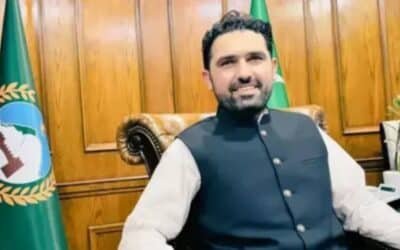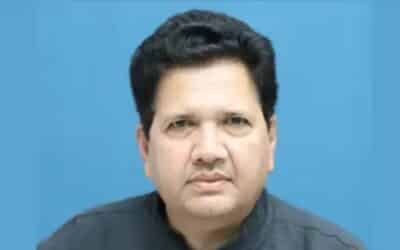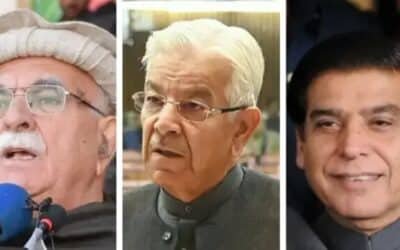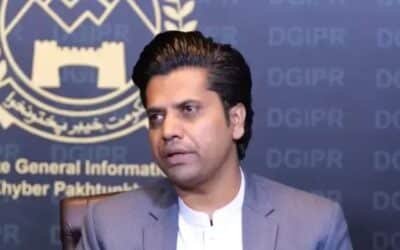Democracy functions best when everyone has a voice. “Civic engagement” involves people participating in how their government is managed. It’s about citizens speaking out, sharing ideas, and collaborating with leaders. This can be as simple as voting or as involved as joining community organizations. When people engage, governments improve and serve everyone more fairly. This article explores the significance of this issue, the obstacles that prevent participation, and strategies to boost citizen involvement in Pakistan.
Why People Joining In Matters
When citizens take part in government, many good things happen:
- Better Decisions: Leaders make smarter decisions when they listen to ordinary people. Citizens know about daily problems they face, like bad roads or dirty water. Their ideas can lead to better solutions that truly meet local needs. For example, if a community is asked about a new park design, it will probably be used more than one designed without local input.
- Stronger Trust: When governments listen, people trust them more. If citizens feel their voices matter, they are more likely to obey laws and support public projects. This creates a stronger bond between the public and their leaders. A study in Punjab found that citizen engagement in local planning can increase trust in government bodies.
- More Accountability: When people see how the government operates, leaders become more cautious. They realize they must answer to the public, which helps prevent corruption and waste. Civic groups can monitor how public funds are spent, ensuring they go to the right places.
- Active Citizenship: Participating increases awareness of rights and responsibilities. It fosters a sense of ownership in the community and country. This encourages more people to work for the common good.
- Better Public Services: When citizens point out problems with schools, hospitals, or sanitation, services can improve. For instance, citizen feedback mechanisms can help local authorities identify areas needing immediate attention in public health or education.
Globally, civic engagement is seen as a key part of good government. It makes a country stronger and its people happier. In Pakistan, where many people feel left out, encouraging civic engagement is very important.
What Stops People from Joining In?
Despite its benefits, many things stop people from taking part in governance in Pakistan:
- Lack of Trust: Many people do not trust government bodies or political leaders. They may feel their voice won’t matter, or that decisions are made by a few powerful people [4]. A 2021 survey showed that only 30% of Pakistanis trust their elected officials [4]. This low trust makes people less likely to get involved.
- Low Awareness: Many citizens are unaware of how to get involved or of their rights. They might not be aware of local council meetings, public hearings, or ways to provide feedback to government offices.
- Weak Local Governments: Pakistan’s local governments, including city and district councils, are often weak. They lack sufficient power and funding. This limits opportunities for citizens to get involved locally, where their actions could make the biggest difference. Even during local elections, their authority is frequently limited.
- Social and Cultural Barriers: In some areas, social rules or traditions prevent certain groups, like women, from participating publicly. Women’s involvement in political activities is increasing but still faces obstacles due to cultural norms in many parts of the country. Additionally, illiteracy can hinder people’s ability to understand issues or official procedures.
- Security Concerns: In some parts of Pakistan, security worries can stop people from gathering or speaking out. Fear of violence or threats can discourage active participation.
- Digital Divide: While online tools can boost engagement, many people in Pakistan lack internet access or digital skills. About 28% of Pakistanis use the internet as of 2023 [7]. This means a large part of the population cannot use online platforms for civic engagement.
- Economic Hardship: When people struggle to meet basic needs, like food and shelter, they have less time and energy for civic activities. Daily survival becomes the main focus.
How to Encourage Participation
To get more citizens involved, we need planned efforts from both the government and civil society.
- Strengthen Local Governments: Give local councils more power, more money, and more freedom to make decisions. This creates direct ways for citizens to get involved and see results. Laws like the Punjab Local Government Act 2019 tried to do this, but full implementation is key. Local elections should be held regularly and on time.
- Increase Awareness and Education: Run campaigns to teach people about civic duties and rights. Explain how they can take part in local decisions. Teach about the benefits of joining community groups. Schools can also add civic education to their lessons.
- Use Technology: Create user-friendly online platforms and mobile apps where citizens can provide feedback, report issues, and track government activities. These digital tools can make it easier for young people and those with internet access to participate. For example, mobile apps for reporting civic issues have shown promise in some cities.
- Support Civil Society: Empower local community groups, NGOs, and citizen networks, as they can serve as bridges between citizens and the government. These groups often have the trust of local residents and can help organize their voices. Civil society organizations in Pakistan have a long history of advocating for public rights.
- Ensure Transparency: Make government information easy to find and understand. Publish budgets, project details, and meeting notes online. When information is open, citizens can better understand decisions and hold leaders accountable. The Right to Information laws are crucial for this.
- Engage Youth and Women: Create special programs to involve young people and women. This could include youth councils, mentorship programs, and forums for women to share their views. About 64% of Pakistan’s population is under 30 [10], representing a vast potential for civic action. Ensuring women’s voices are heard is vital for truly inclusive governance.
Recent Initiatives and Progress
Pakistan has seen various recent efforts to boost civic engagement, especially leveraging technology and focusing on youth.
The Khyber Pakhtunkhwa (KP) government, for instance, launched the “Khyber Pass” digital identity system in July 2025. This QR-based ID platform, linked to NADRA, aims to streamline access to public services like health and education, boosting transparency and citizen-centric governance.
On a national scale, government institutions are increasingly using social media for public engagement and feedback, with platforms like the Pakistan Citizens’ Portal serving as a primary complaint mechanism.
Crucially, youth participation in elections saw a notable rise in 2024. Youth voter turnout surged to a record 48% in the General Election, an 11 percentage point increase from 2018. Organizations like PILDAT played a role with initiatives like “Awami Mukalma,” a digital civic education campaign reaching approximately 8.85 million people. These efforts show a growing push towards more accessible and impactful civic participation, especially through digital means and youth mobilization.
Research notes that politicians increasingly use platforms like Twitter/X and X to frame narratives and connect with citizens, stressing the power and polarization of online civic engagement.
Examples and Progress (though limited)
While challenges remain, there have been some local efforts:
- Citizen Feedback Systems: Some city departments have launched helplines and mobile apps for citizens to report issues like garbage collection or water supply problems.
- Public Hearings: Occasionally, local authorities hold public hearings for large development projects to get citizen input, though this is not consistently applied.
- Civil Society Initiatives: Many non-governmental organizations (NGOs) operate at the community level to educate people about their rights, help them form local groups, and advocate for their needs with the government. These organizations often bridge the gap when formal government structures are weak.
The Way Forward
Encouraging civic engagement is a process, not an instant fix. It requires continuous effort from all parts of society. By strengthening local governments, promoting education, using technology, and protecting freedoms, Pakistan can foster a culture where every citizen feels empowered to participate in governance. This will lead to more effective government, improved services, and a stronger, more trusting society. When citizens are genuinely involved in decision-making, democracy shifts from a set of rules to a living, breathing reality that benefits everyone.
Refrences
- World Bank – Civic and Citizen Engagement
- Zencity – Citizen Feedback Loops: A Key to Effective Governance
- UNDP – Do Governments Listen to Their Citizens?
- D+C Development and Cooperation – Rural Communities and Public Services
- Taylor & Francis Online – Study on Citizen Participation
- eScribe Meetings – How to Inspire Civic Action (Step-by-Step)
- Rocket.Chat – 6 Benefits of Citizen Engagement for Effective Governance
- Twitter and politics: a framing analysis of Maryam Nawaz and Imran Khan’s social media discourse- Frontiers in Communication






























